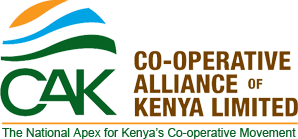Saccos will oversee the "Hustler's Fund." 
23 November, 2022
In order to promote sustainability and conformity with the rules established for the revolving kitty, the government has revealed plans to route the much-anticipated Hustler funds through the cooperative SACCOs.
Simon Chelugui, the cabinet secretary for cooperatives and MSME development, stated that the SACCOs were anticipated to play a significant role in encouraging Kenyans to adopt a saving culture and serve as an intermediary in accelerating financial inclusion and empowerment for the millions of creditors excluded from traditional financial lenders.
During a consultative meeting with the leadership of cooperatives under the Cooperatives Alliance of Kenya (CAK), the CS claimed that the current administration promoted the cooperative movement to boost economic growth through small businesses under the bottom-up paradigm.
The Hustler Fund, which gives people access to credit facilities, is the most important new economic policy initiative for the new administration.
He said that President William Ruto's goal was to make it possible for Kenyans at the bottom of the pyramid to get credit that was affordable and quick. Most of these people had not been able to get credit in the past because they didn't have enough collateral to get loans from big banks.
According to him, the fund will support a variety of products, including start-up loans, SME loans, and personal loans. We aim to enhance a saving culture while building momentum for sustainable development, he said.
Chelugui said that the Head of State is likely to announce and start the first phase of the flagship program on November 30 of this year. He also said that the rules for personal loan products had been finalized and put out for public comment.
Applicants for personal loans will access credit through a digital platform, he said, and the amount offered will range between Ksh 500 and Ksh 50,000 for the more than 7 million people in this category, in contrast to other platforms that only offered Ksh 700 and Ksh 2000. He added that the Saccos will be fully involved in micro- and SME lending.
The CS emphasized that the money the Sacco lend through credit scoring, which is a crucial tool to examine the appropriateness and eligibility of an application, is different from collateral insurance used elsewhere.
He said that once the Saccos are done with personal loans, they'll focus on making rules for microloans. The government will work with cooperatives and SACCOs to do this and will ask for their feedback.
He asserted that prior government attempts to provide revolving funds to organizations failed and frequently did not reach the intended recipients because the banks that channeled the funds imposed by bureaucracies withheld the money in order to buy time while lending to commercial borrowers at high profit margins.
With SACCOs and banks that are eligible for this facility, we will have service level agreements to ensure that delivery was realized through a reliable intermediary to ensure that the impact at the bottom of the pyramid was felt. As we transition to virtual and digital banking, it will be the largest bank, enabling individuals who have been shut out of banks to access opportunities. He pleaded with the SACCOs to be patient, noting that before they enter the world of microloans, the launch of the first product will be complete by January.
Chelugui pledged that the Central Liquidity Facility (CLF), the Shared Services Platform, and the Deposit Guarantee Fund are additional policy initiatives that the ministry will execute in the upcoming months (DGF).
He exhorted the cooperatives' leaders to comprehend the new ministry's objective, adhere to the government's policy directives, and take advantage of investment opportunities available in respective sectors, such as affordable housing.
In addition, he announced plans to increase coffee output from its present level of 40 metric tons per year to 140 metric tons, while the dairy sector was expected to see daily production increase from 1.5 million to 3 million liters. He did, however, issue a warning to businesses that were slow to send Sacco member contributions, noting that more than Ksh 2.3 billion was still owed even though it had already been deducted from employee pay.
He said that he wants the SASRA summary on the list and one year to see how far they can get, and that even if it means going to the source, they'll be there. He explained that these payments were not remitted for various reasons but were still deducted.
The CS promised to work with central banks, county governments, and the National Treasury to make sure that Saccos didn't fail because people didn't send back their savings.They also stated that the government would support any measures taken to bring order back to the sector.
McCloud Malonza, who is the chairman of the Cooperative Alliance of Kenya, talked about some of the most important things that the movement will focus on and why it needs help from the government. For example, the Cooperative Societies Bill needs to be passed by parliament and made into an Act.
Other steps are being taken to help increase production, add value, and diversify the economy. These steps include helping the agricultural sector and reorganizing the cooperative movement into federations.
"Through the adoption of climate-friendly production efforts, financing, and the adoption of green energy, we want to position cooperatives to play a vital role in promoting environmental sustainability," he said.
The COVID-19 epidemic had a significant impact on the cooperative movement, but despite the turmoil, the industry remained strong, and by the end of 2021, there were more than 26,000 registered cooperatives with more than 14 million members. This sector, which has amassed assets worth more than Ksh 1.5 trillion, Ksh 1 trillion in savings, and Ksh 980 billion in loans and advances, generates at least 30% of the country's yearly savings.
